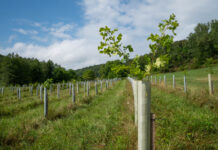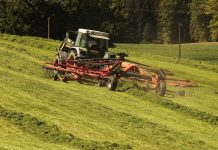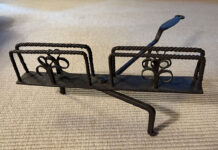By JUDITH SUTHERLAND
Farm and Dairy columnist
I read with interest the academic study report just released that says growing up on a farm impacts immune system health in a positive way.
The University of Bristol’s School of Veterinary Sciences research has shown that spending early life in a complex farm environment increased the number of regulatory T-lymphocytes, an important cell in the body’s immune system response.
Details
Marie Lewis used piglets in her research since they share many physiologic, metabolic, genetic and immune aspects with humans. In this study, some piglets were nursed by their mother sow and left within the farm environment, while other piglets were taken from that same sow, fed formula and placed in an isolator unit under extremely hygienic conditions.
Compared to the piglets in the isolator unit, the farm-raised pigs were found to have reduced numbers of cells that drive immune responses in their intestinal tissues, while also having significantly increased numbers of a subset of these cells, the regulatory T-lymphocytes, which pacify immune responses and limit inflammation.
Results
The farm-reared piglets also exhibited decreased antibody responses to new food proteins when they were weaned. Regulatory T-cells appear to be universal regulators of the immune system, with a reduction in numbers often associated with the development of allergies, autoimmune and inflammatory diseases.
Lewis is quoted in one article, written by Sarah Muirhead for Feedstuffs, as saying, “At this point, it is not clear exactly what caused the increased capacity for immune regulation in our farm-reared piglets. Our previous work suggests that intestinal bacteria play a pivotal role in the development of a competent immune system, and these bacteria are obtained from the environment during early life.”
I can’t help but draw some comparisons to those of us who grew up spending most every day exposed to all sorts of bacteria on a farm. Our fun knew no bounds, and man, did we ever explore!
Daily routine
In my case, the farm was not only a dairy and crop farm but a small farrow-to-finish hog operation. We shoveled corn and oats, threw bales of hay and straw, then helped pitch the end result of all that feed. We drank the milk fresh from the cows and enjoyed many meals provided by our farm animals, and we were generally a very healthy bunch.
Lewis and her team intend to do additional work to determine just what extent other farm factors might have, such as social and maternal interactions, antigens from bedding and early nutrition, on the impact of the environment on increased immune regulation.
Factors
Maybe the study team ought to interview some Farm and Dairy readers who could easily weigh in on this. Did we get called in to the house every hour to scrub our hands with anti-bacterial soap? Did we pump germ-killer on to our hands every time we used our red handkerchief to blow our nose or wipe away good old farm splash from our face? Did we shower morning, noon and night?
Nah, we just kept exploring, we kept working, and a good old bar of Ivory soap sat beside the sink where we washed up before meals.
If we got a cut, who among us used anything stronger than Mercurochome from the medicine cabinet? If an animal suffered a scrape, cut or bite, we knew to hunt up the barn equivalent, something we simply called purple stuff, and spray some on. Inevitably, we got as much of that stuff on ourselves as we did the animal.
I knew all along that we are hearty survivors, didn’t you?












my mom always said you had to eat a pound of dirt before you die